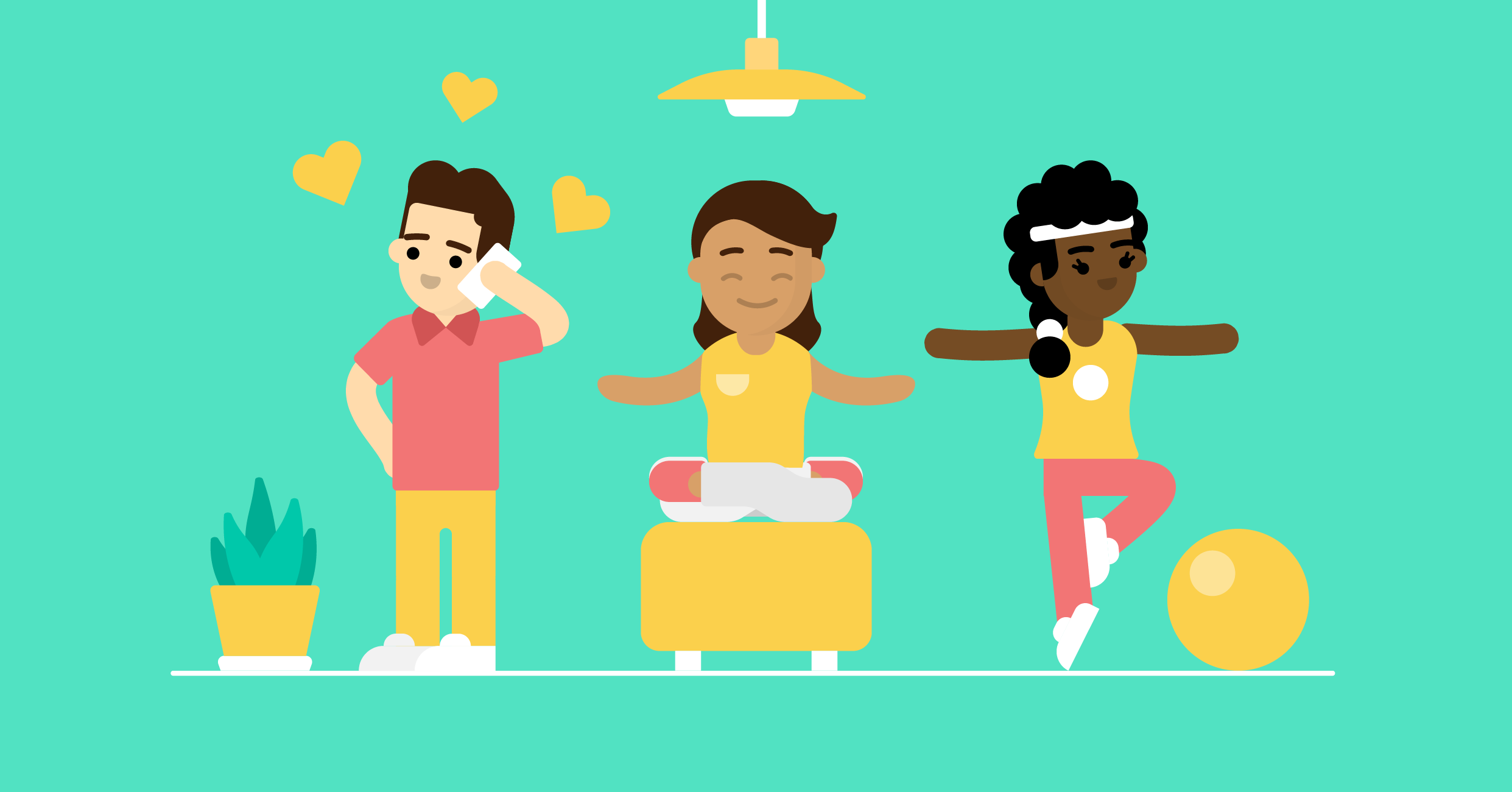How to Deal with COVID-19 Crisis - 4 Mental Well-being Tips

As with any global disaster, these themes of mental distress are common and may pose a barrier to appropriate medical interventions.
In order to lighten the load for the already overtaxed healthcare system and ensure that healthcare workers can focus on combatting the disease, each and every one of us can help by taking responsibility for their mental well-being.
Here are few recommendations that will help you to protect your personal mental health while being supportive to others. These suggestions are inspired by the Act-Belong-Commit campaign to promote positive mental well-being which you can see here.
Mental well-being boost (MWB) #1: Mindful morning
Get up 20 minutes earlier to start your day with a meditation. You can either sit in stillness or use one of the many apps for a guided mediation:
- Insight Timer: Join over 13 million meditators from around the world with this app for sleep, anxiety and stress reduction.
- Headspace: Learn how to meditate and receive emergency guidance
- Calm: Nature sounds and Deep Sleep meditation series to time travel back to your
childhood days to drift into dreamland (https://www.calm.com/
MWB boost #2: Become active
You can think of your mental health just like physical health. In order to develop a strong and resilient muscle it requires regular training. This can mean to simply go outside once a day for half an hour and walk, run or bicycle in the nature. If you are locked inside, here a some really good videos for some virtual training:
- For yoga-lovers check this!
- For Tai-Chi check this video.
- Equipment free home workout.
- The famous toilet paper work out
https://abcnews.go.com/GMA/Wellness/video/mans-funny-toilet-paper-workout- coronavirus-lockdown-inspo-69629215
Truth to be told, the crosstalks between the brain and muscle are not fully understood by research yet.
However, scientists have found that physical activity represents one of the most effective strategies to boost mental well-being, reduce incidence of depression and other cognitive disorders. So, get up and release those endorphins!
MWB boost #3: Belong
Research has demonstrated that staying connected with your loved ones is key to protect against mental distress. Make sure to check in daily with friends & family to share some virtual hugs and smiles.
Did you know that expressing gratitude for your social connections improves psychological health? Here is some more thought food to chew on when entangling your personal relationships:
- Amy Moring on “The Secret on Becoming Mentally Strong”
- Robert Waldinger on “What makes a good life”
MWB boost #4: Commit
Doing something for someone else can be a powerful brain changer. Volunteering has been proven to be an effective strategy to enhance community involvement and strengthen social capital. Concerned about going outside? No problem, the UN and other organizations offer virtual volunteering:
- Join here over 12,000 volunteers to work for peace and development.
- Become a virtual listener for individuals in mental distress here.
- Volunteering.dk
- Save the Children Youth (in Danish, but they accept English-speaking volunteers)
- Global Doctors
- IMCC (International Medical Cooperation Committee)
- UBU (Danish Association for Sustainable Development)
- AIDS Fonden
- UN City
- Eye on Global Health
Please take good care of your mental health and do not hesitate to share this article.
References:
M. Fisher and E. Bubola, “As Coronavirus Deepens Inequality, Inequality Worsens Its Spread - The New York Times,” The New York Times, 2020. [Online]. Available here. [Accessed: 27-Mar-2020].
Y. T. Xiang et al., “Timely mental health care for the 2019 novel coronavirus outbreak is urgently needed,” The Lancet Psychiatry, vol. 7, no. 3. Elsevier Ltd, pp. 228–229, 01-Mar-2020.
J. Delezie and C. Handschin, “Endocrine crosstalk between Skeletal muscle and the brain,” Frontiers in Neurology, vol. 9, no. AUG. Frontiers Media S.A., 24-Aug-2018.
C. B. Taylor, J. F. Sallis, and R. Needle, “The relation of physical activity and exercise to mental health,” Public Health Rep., vol. 100, no. 2, pp. 195–202, 1985.
V. Koushede, L. Nielsen, C. Meilstrup, and R. J. Donovan, “From rhetoric to action: Adapting the act-belong- commit mental health promotion programme to a Danish context,” Int. J. Ment. Health Promot., vol. 17, no. 1, pp. 22–33, 2015.
Z. I. Santini, A. Koyanagi, S. Tyrovolas, C. Mason, and J. M. Haro, “The association between social relationships and depression: A systematic review,” J. Affect. Disord., vol. 175, pp. 53–65, Apr. 2015.